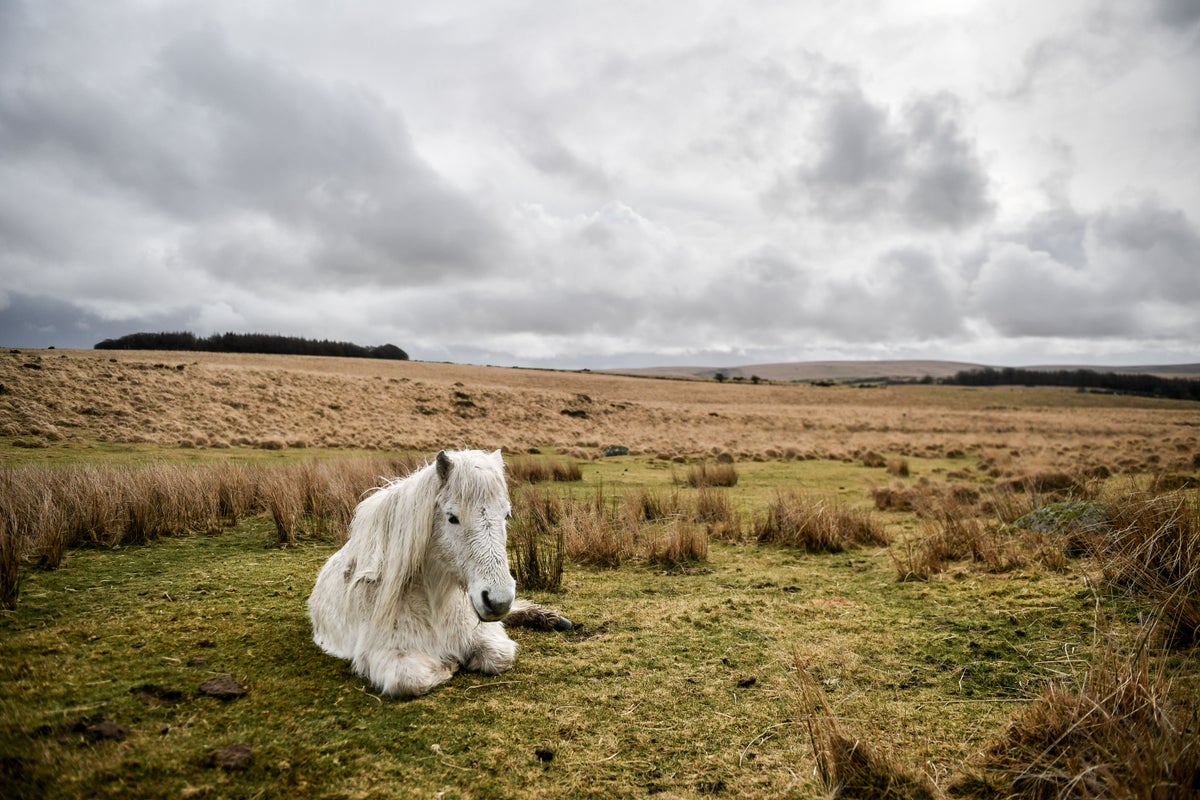
Two landowners’ legal challenge over the right to camp on the Dartmoor National Park is an “attack” on a “long established practice of great importance”, the High Court has been told.
Alexander and Diana Darwall, who have lived at Blachford Manor in Devon since 2013, believe that camping “often creates problems and risks” which are “getting worse”, a judge was told.
The farming couple, who have a cattle herd on the moor, are seeking a court declaration that “members of the public are not entitled … to pitch tents or otherwise occupy Stall Moor overnight” except with their consent.
The husband and wife’s more than 3,450-acre estate in the southern part of Dartmoor covers land on the remote Stall Moor, with its website advertising pheasant shoots, deer stalking and holiday lettings.
Throughout the history of Parliament's interventions in this field, camping has been excluded from what the public might do under the rubric of 'recreation'— Timothy Morshead KC
Their High Court case, which the Dartmoor National Park Authority is defending against, centres on the interpretation of a 1985 law that regulates access to the moorland, with the hedge fund manager and his wife arguing that its purpose was not to “confer on the public a right of camping”, their lawyer said.
The park authority argues wild camping – where backpackers stay overnight away from traditional camp site facilities – is permitted as long as people do not cause damage or breach local restrictions.
Dartmoor National Park, designated in 1951, covers a 368-square mile area and has “an international reputation as an extensive, picturesque, rugged, and wild place”, the park authority lawyer said.
Right to roam campaigners and Green MP Caroline Lucas previously protested outside the High Court in London this week over their opposition to the legal challenge.
At a hearing on Tuesday, Timothy Morshead KC, for the Darwalls, said they aimed to “improve practices in the area” and that getting the court’s guidance on the law was better than pursuing trespass allegations against “some unfortunate individual”.
He said in written arguments that a provision of the Dartmoor Commons Act outlines how “the public shall have a right of access to the commons on foot and on horseback for the purpose of open-air recreation”.
Mr Morshead said the Darwalls “do not question the public’s right to walk and ride on the commons” but whether they can camp there.
He said the 1985 law was designed to tackle “a perceived lack of a right to roam” and that it was “no part of the legislative purpose to remove the requirement of landowners’ consent for camping”.
Mr Morshead argued: “Throughout the history of Parliament’s interventions in this field, camping has been excluded from what the public might do under the rubric of ‘recreation’.”
The barrister claimed that none of the evidence in the case “contains any hint” of the existence of a “custom of camping” on Dartmoor, with landowner permission needed for camping at the time of the creation of the 1985 Act.
Timothy Leader, representing the park authority, told Tuesday’s hearing that “camping is a form of open recreation which is permitted on the commons”.
The lawyer said in written submissions that there was evidence of a “local custom” of wild camping on Dartmoor and argued there was “no compelling evidence” that it harmed the ecology of Stall Moor or that it “gives rise to substantial nuisance”.
Drawing distinctions between “conventional camping” and “wild camping” in court, Mr Leader said there was no record of previous challenges being made over the latter, which involves “camping for a short time, leaving no trace in order to better enjoy the delights of Dartmoor”.
In written submissions, Mr Leader said the Darwalls had a “narrow” interpretation of the 1985 act, adding that wild camping was a form of recreation “enjoyed on Dartmoor for over 100 years”.
He said Stall Moor provides the public with a “wilderness experience” and that wild camping was “entirely compatible with the purposes and special qualities of the National Park”.
Mr Leader said that byelaws made by the park authority create local rules, including over camping, that “strike a balance between the interests of those who farm Dartmoor and the visiting public”.
The park authority promotes the regulation of wild camping by publishing a map on its website showing where it is permitted and providing guidance on complying with the byelaws, Mr Leader said.
The barrister said the Darwalls’ case was “an attack” on the lawfulness of existing byelaws and policy relating to camping on Dartmoor and that should the couple secure a court declaration it would “upset a long-established practice of great important to the defendant, the public and other interested parties eg the Ramblers Association”.
Mr Leader, who argued the declaration should not be made, later told the court that the right to roam embraces “very short term, low impact camping” that is linked to “walking across the commons as part of an extended visit to Dartmoor”.
“There are going to be many people whose rights are going to be affected by this decision,” he said.
The hearing before Sir Julian Flaux is due to conclude on Wednesday, with a ruling expected at a later date.







